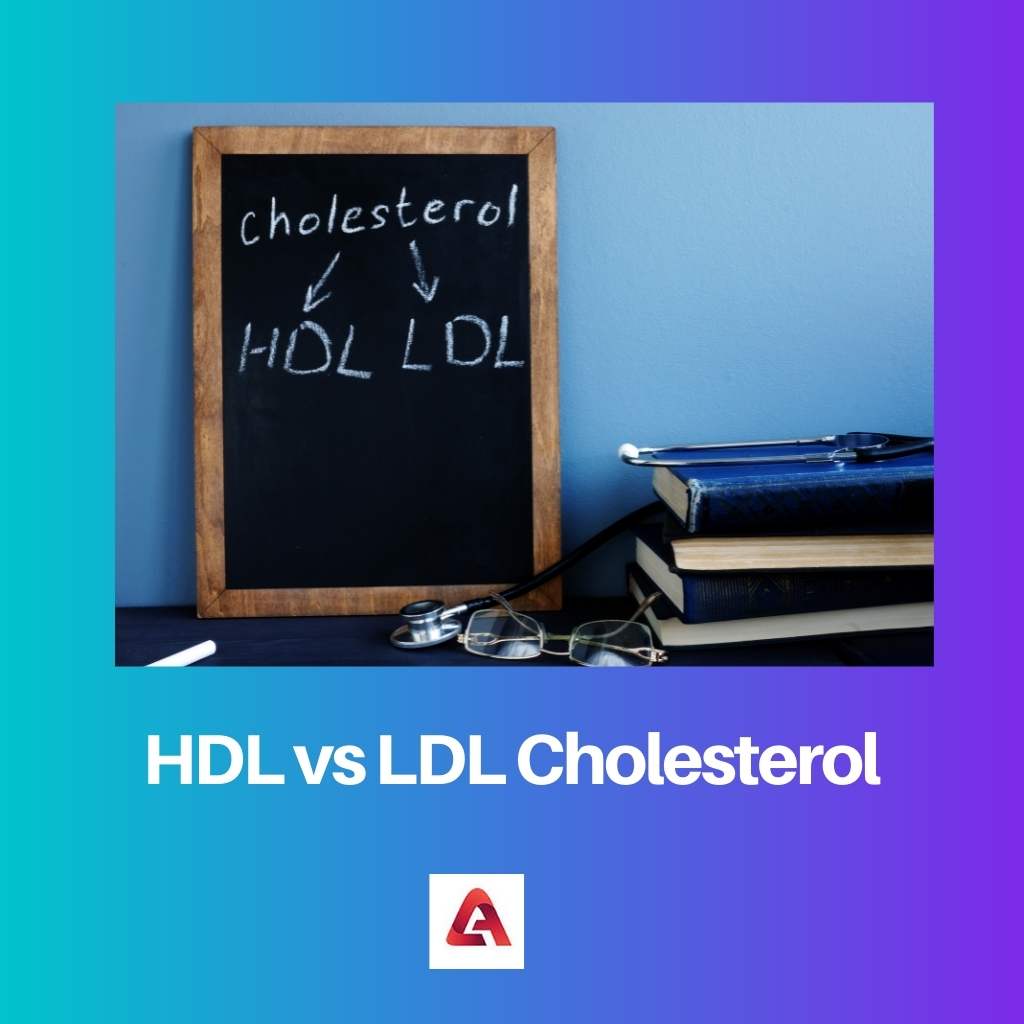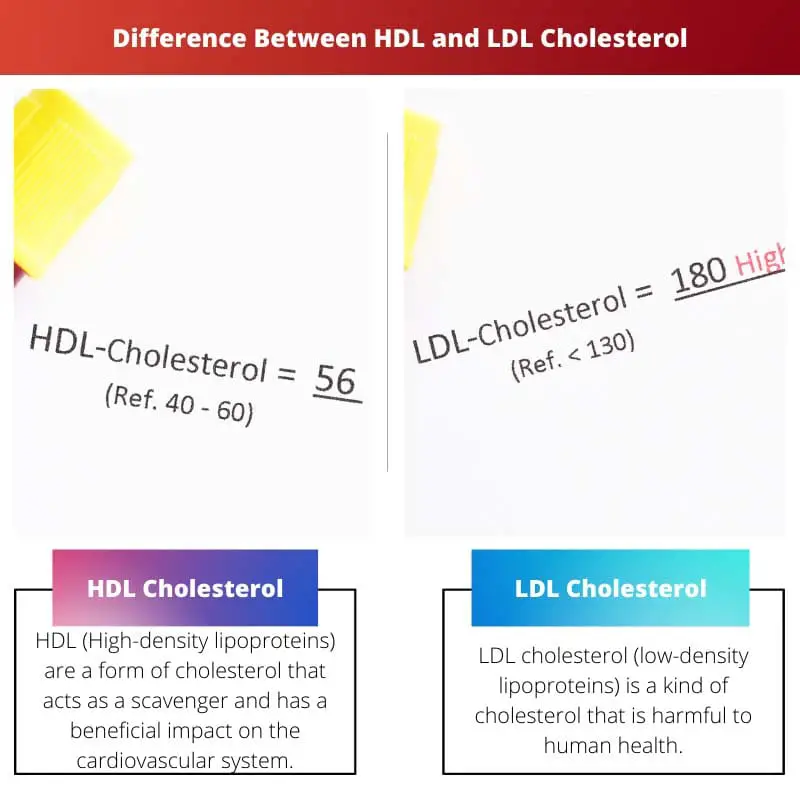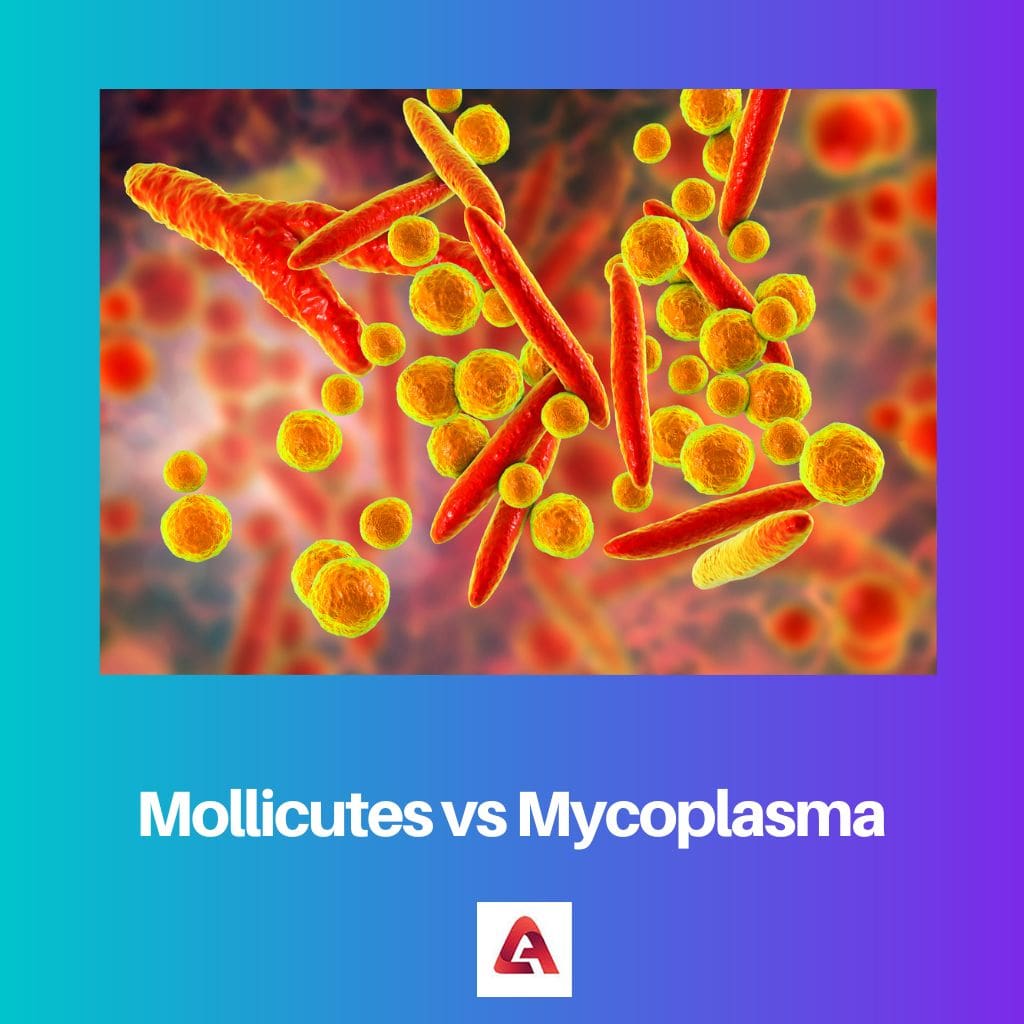Cholesterol is essential for optimal health because it helps to form cell membranes, hormones including testosterone and estrogen, and acts as an intracellular messenger.
Key Takeaways
- HDL cholesterol, known as “good” cholesterol, helps remove LDL cholesterol from the bloodstream.
- The “bad” cholesterol can build up in arteries and lead to heart disease.
- Aiming for a higher HDL level and a lower LDL level can reduce the risk of cardiovascular issues.
HDL vs LDL Cholesterol
HDL, or high-density lipoprotein cholesterol, is the “good” cholesterol because it helps remove excess cholesterol from the bloodstream and carries it to the liver for processing and elimination. LDL, or low-density lipoprotein cholesterol, is the “bad” cholesterol because it can contribute to plaque buildup in the arteries, increasing the risk of heart disease.

HDL is known as the “good cholesterol” because it transports cholesterol from your body to your liver, the place where it is eliminated. It also removes extra cholesterol from your body.
A high level of cholesterol can block the arteries, increasing the chance of blood clots in the arteries, it can also give you a heart attack or stroke.
Comparison Table
| Parameters of Comparison | HDL | LDL |
|---|---|---|
| DEFINITION | HDL means high-density lipoprotein. | LDL (low-density lipoprotein) is a kind of harmful cholesterol. |
| LEVEL | In our bodies, HDL levels should be greater. | Our body’s LDL levels should be low. |
| FUNCTION | HDL transports harmful cholesterol from other areas liver. | LDL builds up in the arteries and causes plaque to develop. |
| LOW LEVELS | HDL is bad for our health since it raises our chances of heart attacks and strokes. | LDL is beneficial to our health. |
| HIGH LEVELS | Hdl is beneficial to our health. | LDL is harmful to one’s health since it contributes to cardiovascular disease. |
What is HDL?
HDL (High-density lipoproteins) are a form of cholesterol that acts as a scavenger and has a beneficial impact on the cardiovascular system.
Cholesterol has a bad name, yet it’s vital for your body’s healthy functioning. Cholesterol is used by the body to create hormones and vitamin D, to aid digestion.
A low amount of HDL, on the other hand, is not desirable because it is linked to an increased risk of heart attacks and strokes.
The better your health, the higher the figure indicated by the cholesterol check. Males should have a value of more than 45 mg/dL, while females should have a figure greater than 55 mg/dL.
What is LDL?
LDL cholesterol (low-density lipoproteins) is a kind of cholesterol that is harmful to human health. They transport freshly produced cholesterol from the liver to our body’s different tissues.
When LDL levels are high, a fatty deposit in the arteries, known as plaque, can form, narrowing the arteries and restricting blood flow.
In reality, there is a relationship between LDL and HDL values. HDL transports LDL from the arteries to the liver. As a result, when HDL levels drop, LDL levels rise, offering the aforementioned risks.
This figure indicates whether your cholesterol levels are high or low in your body. You do not have heart disease, diabetes, or blood vessel disease if the value is not as much as 130 mg/dL. Your LDL level should be less than 100 mg/dL.

Main Differences Between HDL and LDL
- High-density lipoprotein or HDL particles are made up of 20% cholesterol and 50% protein, whereas LDL or low-density lipoproteins particles are made up of around 50% cholesterol and 25% protein.
- A-I and A-II proteins make up the majority of HDL particles. B-100 proteins can be found in low-density lipoproteins.





